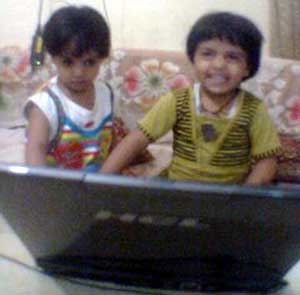Researchers from the University of Birmingham and the University of Reading looked at the traits of over 17,000 children born in 1970, who were surveyed again aged 38.
They found that the youngest children born into families who are not self-employed are almost 50% more likely to take a risk of going into business.
This figure increased to 65-per cent for a last-born child in an already entrepreneurial family.
Professor Francis Greene at the University of Birmingham said: ‘Researchers have known for a quite a long time that entrepreneurship runs in families. What was less clear was which child was more likely to follow their parents into entrepreneurship.
‘The most surprising finding in this study was if your parents had no entrepreneurial experience and you were a last-born, you were more likely to be self-employed than your older siblings. This suggests that last borns are more likely to be risk-takers.’
However, researchers found that this birth order effect changed dramatically when looking at children from families whose parents were already entrepreneurial. Here, last-borns were 18% less likely to follow their parents into business. Instead, it was the first and middle-born children who had the highest propensity for going into business, with their chances increasing by 151% and 118% respectively.
Dr. Liang Han at the University of Reading added: ‘One implication of our findings is that family business owners need to think hard about how they use birth order to make decisions about family succession.
First and middle-borns may be more comfortable with taking on a family business because it is more familiar, but it might be that the last-born child who has traits that are better suited to being in business.’

















Related Items
Matchmaking to Meme Carnivals are side effects of traffic jams
Are trade unions under threat in today's liberalised world order?
Beyond the Bulldozer, A real shift in Law and Order of Uttar Pradesh